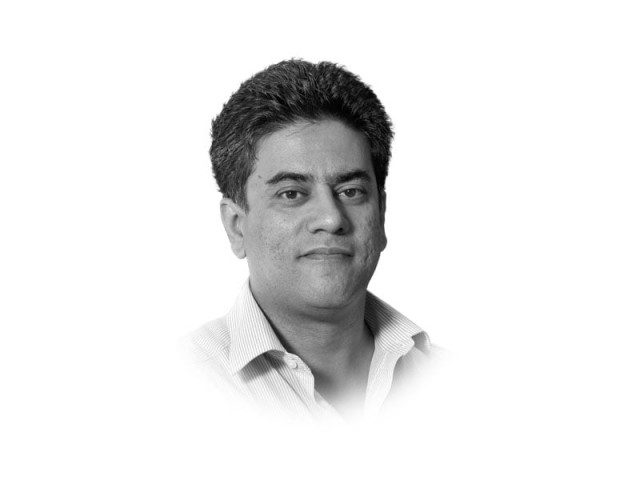Raising questions
Army Chief General Kayani asks two fundamental questions in an address to officers at the GHQ in Rawalpindi.

In what was clearly an internal debate, General Kayani asked his officers firstly whether in the present scenario we are promoting the rule of law and the Constitution. And second, whether we are strengthening or weakening institutions. It is not clear who the “we” in this speech is but one can assume that the army chief was talking about Pakistanis as a whole and not just the armed forces. These are important questions coming from an important institution. The army chief also warned that certain elements are trying to drive a wedge — wittingly or unwittingly — between the people and the armed forces. Many analysts have come out with their interpretation of the speech. The army has not contradicted any of them. Possibly, they are now watching the debate evolve.
In response, Chief Justice Iftikhar Muhammad Chaudhry has already commented that the Supreme Court has the final authority on constitutional matters. This has prompted fears of a war of words between the judiciary and the military leadership. So far, these fears are unfounded. But things are more complicated than they seem. General Kayani also said that we are passing through a critical phase in our country’s history and future generations will judge us positively if “all of us serve Pakistan better” — the emphasis being on the word “all”.
In answer to the first question, the present democratic set-up has done little to promote the rule of law. Non-state actors continue to act independently and challenge the state. In this, the democratic government says that other actors of the state are helping prop up these non-state actors. It is a blame game but this is no excuse. The elected government has itself set aside the rule of law. Many of our leaders, politicians and civil and military bureaucrats have challenged the rule of law and gotten away with it. Only the poor and weak get charged or punished. Rarely do the rich and powerful go to jail in Pakistan. Our elected representatives head tribal jirgas where an alternative justice system exists. This jirga system in many places has now been taken over by the Taliban. The judiciary is ignored. More important, the civilian government does not have the strength or will to have decisions implemented.
On the same note, the more important question is whether we are promoting the Constitution. One cannot deny that the tussle between the judiciary and the executive has weakened democracy in Pakistan. It goes to the credit of the government that it has bowed before the judiciary. Here, the government may be credited for upholding the Constitution. In many ways, this tussle in Pakistan will help settle larger issues for the country.
The second question — whether we are strengthening or weakening institutions — is something that is closer to Gen Kayani’s heart. Some analysts say that bringing the retired generals and scandals involving army officers to the courts will weaken the standing of armed forces in the eyes of the people. The media has also played a role in highlighting issues. They have hounded generals in question — with one former army chief attacking a camera man and interviewer and another former intelligence chief using abusive language on camera. This has hurt officers who see their superiors being ridiculed. But these things will settle.
In this, possibly, the answer is our institutions are strengthening. All pillars of state are performing their responsibilities with comparative independence and lesser interference. The judiciary is independent. The legislature, with all its faults, is somewhat relevant. And the executive does not look over its shoulder all the time. To add to this, the media is free. At least for the most part. As things stand, one can assume that with the tussles between the various pillars, each one will emerge stronger — and not weaker as some assume. Even the armed forces will come out of this exercise with a better sense of what is expected of them. Our only worry now is that this process should not be interrupted. We will emerge stronger from this in the coming days.
Published in The Express Tribune, November 12th, 2012.















COMMENTS
Comments are moderated and generally will be posted if they are on-topic and not abusive.
For more information, please see our Comments FAQ